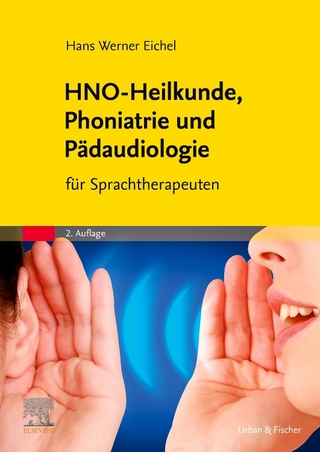
Inpatient Functional Communication Interview
Screening, Assessment, and Intervention
Seiten
2019
Plural Publishing Inc (Verlag)
978-1-63550-172-8 (ISBN)
Plural Publishing Inc (Verlag)
978-1-63550-172-8 (ISBN)
For speech-language pathologists (SLPs) and other healthcare professionals working in acute and rehabilitation hospitals, this set of four resources is designed to enhance patient-provider communication in hospitals by enabling healthcare professionals to identify and support patients who have difficulty communicating.
The Inpatient Functional Communication Interview: Screening, Assessment, and Intervention (IFCI: SAI) is a set of four resources for speech-language pathologists (SLPs) and other healthcare professionals working in acute and rehabilitation hospitals. They can be used separately or together to enhance patient-provider communication in hospitals. The IFCI: SAI has been developed so healthcare professionals can identify and support patients who have difficulty communicating, with a focus on patients with communication disability.
The first resource is the Screening Questionnaire. The Screening Questionnaire is designed to identify patients who have difficulty communicating about their healthcare and will need support to communicate with healthcare providers in hospital.
The second resource is the Inpatient Functional Communication Interview (IFCI). The IFCI is a semi-structured interview that the SLP conducts at the patient’s bedside. During the interview, the SLP investigates how well the patient can communicate in everyday healthcare communication activities. If the SLP and patient have difficulty communicating, the clinician investigates if any communication supports or strategies enable successful communication.
The third resource is a set of impairment rating scales. These assist the SLP to rate their initial clinical impressions of the patient’s speech intelligibility, spoken language, and cognitive-communicative function. Each rating scale provides descriptions of speech, language, and cognitive-communicative function on a five-point scale ranging from no impairment to complete impairment.
The final resource is a set of Environmental Questionnaires (EQs). The EQs assist SLPs and other healthcare professionals to screen the communicative environment for factors influencing patient-provider communication in their setting. Once the factors that influence patient-provider communication have been identified, SLPs and other healthcare professionals may be better informed and more able to systematically address these factors to develop communicatively accessible hospital services.
Speech-language pathologists play a vital role in supporting hospital patients with communication disorders and their healthcare providers to communicate in optimal ways. This requires a broad view of the role of SLPs in hospitals: one that incorporates individual patient-provider interactions and the broader communicative environment of the hospital as well. The Inpatient Functional Communication Interview: Screening, Assessment, and Intervention provides SLPs and other healthcare professionals with the resources to explore and develop this emerging, new role. Additionally, a PluralPlus companion website includes video examples that pair with case studies from the book to demonstrate how to use the resources in practice.
The Inpatient Functional Communication Interview: Screening, Assessment, and Intervention (IFCI: SAI) is a set of four resources for speech-language pathologists (SLPs) and other healthcare professionals working in acute and rehabilitation hospitals. They can be used separately or together to enhance patient-provider communication in hospitals. The IFCI: SAI has been developed so healthcare professionals can identify and support patients who have difficulty communicating, with a focus on patients with communication disability.
The first resource is the Screening Questionnaire. The Screening Questionnaire is designed to identify patients who have difficulty communicating about their healthcare and will need support to communicate with healthcare providers in hospital.
The second resource is the Inpatient Functional Communication Interview (IFCI). The IFCI is a semi-structured interview that the SLP conducts at the patient’s bedside. During the interview, the SLP investigates how well the patient can communicate in everyday healthcare communication activities. If the SLP and patient have difficulty communicating, the clinician investigates if any communication supports or strategies enable successful communication.
The third resource is a set of impairment rating scales. These assist the SLP to rate their initial clinical impressions of the patient’s speech intelligibility, spoken language, and cognitive-communicative function. Each rating scale provides descriptions of speech, language, and cognitive-communicative function on a five-point scale ranging from no impairment to complete impairment.
The final resource is a set of Environmental Questionnaires (EQs). The EQs assist SLPs and other healthcare professionals to screen the communicative environment for factors influencing patient-provider communication in their setting. Once the factors that influence patient-provider communication have been identified, SLPs and other healthcare professionals may be better informed and more able to systematically address these factors to develop communicatively accessible hospital services.
Speech-language pathologists play a vital role in supporting hospital patients with communication disorders and their healthcare providers to communicate in optimal ways. This requires a broad view of the role of SLPs in hospitals: one that incorporates individual patient-provider interactions and the broader communicative environment of the hospital as well. The Inpatient Functional Communication Interview: Screening, Assessment, and Intervention provides SLPs and other healthcare professionals with the resources to explore and develop this emerging, new role. Additionally, a PluralPlus companion website includes video examples that pair with case studies from the book to demonstrate how to use the resources in practice.
Preface
Acknowledgments
Reviewers
Chapter 1. Overview
Chapter 2. Rationale for the IFCI: SAI
Chapter 3. IFCI – Screening Questionnaire
Chapter 4. The Inpatient Functional Communication Interview (IFCI)
Chapter 5. Rating Communication – Related Impairments
Chapter 6. IFCI -– Environment Questionnaires
Chapter 7. Case Studies
| Erscheinungsdatum | 15.10.2019 |
|---|---|
| Verlagsort | San Diego |
| Sprache | englisch |
| Maße | 216 x 279 mm |
| Themenwelt | Medizin / Pharmazie ► Gesundheitsfachberufe ► Logopädie |
| ISBN-10 | 1-63550-172-5 / 1635501725 |
| ISBN-13 | 978-1-63550-172-8 / 9781635501728 |
| Zustand | Neuware |
| Haben Sie eine Frage zum Produkt? |
Mehr entdecken
aus dem Bereich
aus dem Bereich
Grundlagen, Diagnostik und Therapie
Buch | Hardcover (2023)
Urban & Fischer in Elsevier (Verlag)
CHF 92,80
für Sprachtherapeuten
Buch | Softcover (2021)
Urban & Fischer in Elsevier (Verlag)
CHF 57,35
Die logopädische Therapie orofazialer Dysfunktionen
Buch | Softcover (2022)
Urban & Fischer in Elsevier (Verlag)
CHF 37,80


